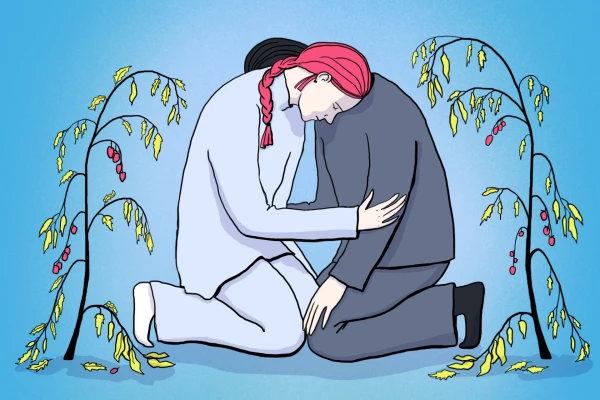
Chronic stress and constant emotional strain can affect not only work but also personal life. Emotional burnout reduces empathy, alters the perception of a partner, and can lead to alienation. We explore how fatigue reflects on relationships and what helps maintain closeness.
Causes of Burnout in a Couple
Living together requires significant investments — emotional, physical, and temporal. If one or both partners face chronic stress, harmony is disrupted. The first signs of burnout manifest as irritability, fatigue, and a loss of interest in communication. Often, this is a combination of professional pressures, household concerns, and a lack of support.
Internal beliefs also play a role. High expectations from the relationship, idealization of the partner, and the desire to meet others' standards create emotional overload. Gradually, a person feels empty, which directly affects the quality of interaction with their partner.
How Burnout Changes Relationship Dynamics
When one partner experiences burnout, it reflects on both. The number of joyful moments decreases, conversations become formal, and support is minimal. Physical intimacy declines, while fatigue and apathy suppress expressions of affection.
Distance intensifies conflicts or causes them to fizzle out without resolution. People become withdrawn, and attempts to compensate for the lack of emotions outside the relationship can undermine trust.
Ways to Prevent and Overcome Burnout
To maintain harmony, it is important to recognize the signs of burnout in time and take action. One key method is balancing work, personal life, and rest. A clear allocation of time helps reduce the burden.
Emotional support from a partner plays a crucial role: open dialogue, a willingness to listen, and a lack of judgment help lower tension levels. Shared positive activities — walks, travel, hobbies — contribute to restoring the emotional background.
Personal Boundaries and Self-Development
Burnout is often related to a lack of personal space. It is important to consider each person's needs by allocating time for hobbies, meetings with friends, and solitude. Respecting personal boundaries helps maintain individuality and prevent merging into the relationship.
Self-development supports emotional resources: acquiring new skills, working with a psychologist, or meditation helps recognize one’s needs and manage stress. The better a person understands themselves, the easier it is to build healthy, harmonious relationships.
Emotional burnout can destroy even strong couples if ignored. Recognizing the problem, supporting each other, and working on oneself help cope with the crisis and strengthen the bond, making the relationship more resilient and long-lasting.












